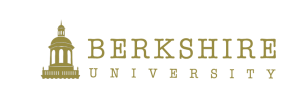Program Objectives
Berkshireuniversity Master of Accountancy enables students to contribute to the accounting profession through independent learning, scholarship, and research. Upon completion of this program, students are able to:
- Apply accounting theory, practice, and professional ethical behavior to make informed decisions in their profession
- Evaluate and apply generally accepted accounting principles and practices using emerging technologies
- Create a shared vision of an accounting culture by understanding and responding to the needs of business and society in a global environment.
- Effectively apply accounting expertise to the disclosure of accounting information needed by internal and external decision-makers
- Continue to renew and develop expertise in the field of accounting up to and including professional certification
- Demonstrate professional communication skills in writing through organizing, thinking critically, and communicating ideas and information in documents and presentations.
Prerequisites for Major Courses
- Baccalaureate degree from an accredited institution in accounting; or baccalaureate degree from an accredited institution in business or equivalent with appropriate upper division accounting coursework
Program Outline
NOTE: Courses in the Master of Accountancy program are each eight-weeks in length, and students are normally scheduled for one course at a time.
To receive a Master of Accountancy degree, students must earn 36 graduate level credit hours. Thirty of the program hours must be completed through Keiser University. Program requirements are as follows:
| Master of Accountancy Major Core Courses ( 24.0 credit hours ) | |
| Advanced Financial Reporting and Accounting Concepts | 3.0 credit hours |
| Advanced International Accounting Concepts | 3.0 credit hours |
| Advanced Cost/Managerial Accounting | 3.0 credit hours |
| Advanced Governmental and Fund Accounting | 3.0 credit hours |
| Advanced Accounting Information Systems | 3.0 credit hours |
| Advanced Auditing Theory and Applications | 3.0 credit hours |
| Fraud Examination Concepts | 3.0 credit hours |
| Fraud Examination Conduct and Procedures | 3.0 credit hours |
| Fraud Examination and the Legal Environment | 3.0 credit hours |
| Advanced Contract and UCC Law | 3.0 credit hours |
| Special Topics in Taxation | 3.0 credit hours |
| Professional Accounting Research | 3.0 credit hours |



